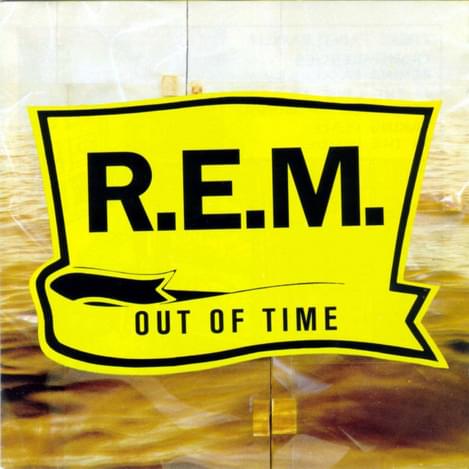25 years on, R.E.M.'s Out of Time remains rock's strangest success story
"Out of Time (25th Anniversary Edition)"

This was the record that solidified the gradual transformation of the Athens, Georgia quartet from underground indie darlings to international pop superstars. But the first thing that you hear on the band’s multi-platinum, Grammy-winning chart topper isn’t Michael Stipe’s quivering vocals, Peter Buck’s jangly guitar, Mike Mills’ fluid bass line, or Bill Berry’s steady drum beat – it’s the perplexed voice of K.R.S. One, the enlightened MC from the socially conscious hip-hop crew Boogie Down Productions.
During their biggest moment to date – with the attention of the music industry squarely upon them – R.E.M. immediately deflected attention from themselves with a quick lyrical decoy, throwing their fans for an initial loop while ultimately going on to win over the entire world in the process.
That lead-off track, “Radio Song,” contained within it a defiant criticism of the tame, calculated playlists of the very same radio stations that soon enough would be repetitiously playing “Losing My Religion” and “Shiny Happy People.” Out of Time – which has just been reissued to commemorate its 25th anniversary – wasn’t an album that ever hid its social intentions or shied away from its anti-establishment ambitions. Beyond the two smash hit singles that helped define the literate alt-rock movement of the early ‘90s, the album ultimately coalesces around a series of unconventional but elegant spoken-word tone poems (“Low,” “Belong,” and “Country Feedback”) that were far removed from the grungy guitars and vacuous pop that dominated the mainstream at the time.
Even “Losing My Religion” – the Grammy-winning single that was to be R.E.M.’s highest-charting hit in the United States – was an eccentric, contemplative outlier compared to the boisterous hits of the day, with the band bringing an indelible mandolin riff to the unsuspecting masses. Tarsem Singh’s Caravaggio-inspired, religious themed video (which also won a Grammy) likewise stood in stark contrast to the braggadocio materialism and untamed angst that saturated MTV during that era, adding to the fragile poignancy of the song itself with its sophisticated biblical theatricality. R.E.M.’s time in the spotlight was never going to be predictable or formulaic, and it was going to be done in their own idiosyncratic way. Out of Time was the band’s first Number One record in the U.S. as well as the U.K., but yet they never toured in support of the album.
As with most memorable records, the hits get the listeners’ attention but it’s the deeper cuts that keep the true fans coming back to it over the years. And Out of Time is no exception. “Near Wild Heaven” and “Texarkana” both contain rollicking elements and wistful echoes of R.E.M.’s college-rock roots, providing a distinct stylistic nod to the young, upstart band that they once were but never really would be again. The deeply moving, mandolin-laden “Half a World Away” stands as a refined companion piece to “Losing My Religion,” continuing the narrative with the solitary character leaving their corner behind, ready to face the lonely world by themselves but shoeless, with their mind racing after witnessing a miracle that they never saw coming.
R.E.M. also continued their tradition of ending their albums with some of their best work, as the glorious “Me In Honey” brings the record to an emphatic conclusion. Stipe is joined on vocals for the track by the B-52’s Kate Pierson (who also guests on “Near Wild Heaven” and “Shiny Happy People”), and the congenial duo bring plenty of heart and unguarded vulnerability to the conflicted but hopeful love song. “Me In Honey” provides the perfect finish for a breakthrough pop album for the ages – one that is truly unlike any other, before or since.
The rest of the newly reissued set is comprised of a series of unreleased instrumental demos and rough early sketches of eventual album cuts, as well as one unearthed new song from the Out of Time sessions, “Fretless 1.” While a majority of these outtakes are for diehard fans and completists only, hearing the band's creative progressions on their way towards the exquisite finished versions of these songs provides an insider’s glimpse into the studio machinations of a legendary band still in the making.
Also included in the set is a rare, one-off acoustic show from 1991 at Mountain Stage in Charleston, West Virginia, which was originally aired on National Public Radio. Since the band didn’t do a full-fledged tour in support of Out of Time, hearing those indelible songs while they are still fresh for the band and audience alike – “Radio Song” is even performed twice, since Stipe admitted they screwed it up the first time – is a unique treat that most fans of the band never had the pleasure to experience.
In addition to some classics sprinkled in the 14-song set (“It’s the End of the World As We Know It,” “Disturbance at the Heron House,” “Swan Swan H,” and "Fall on Me," which Stipe refers to as “my favorite song in the R.E.M. repertoire”), the group is also joined by Billy Bragg and Robyn Hitchcock for a festive version of Jimmy Dale Gilmore’s “Dallas.” The show is a stripped down snapshot of a band that wasn’t quite comfortable being the focus of the intense glare of the music world, but they had the type of quality tunes that commanded everyone's attention whether they wanted it or not.
Even while shunning the spotlight while the entire world was their stage, R.E.M. must have known that the distinctive batch of confident and quirky new songs on Out of Time would change the course of modern music as well as their respective careers. There was no going back to Rockville from here, but sweetness was soon to follow.
Get the Best Fit take on the week in music direct to your inbox every Friday

Bon Iver
SABLE, fABLE

Mamalarky
Hex Key

Florist
Jellywish





